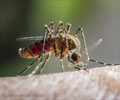- Using travel data and infections diagnosed in travelers plus viral gene analysis, scientists have been able to uncover a hidden Zika outbreak in Cuba in 2017
- Around 1000-20,000 Zika cases should have occurred in Cuba in 2017, although not a single case was reported
- Such unreported outbreaks pose a real threat of dangerous infections silently spreading across the world and underscore the importance of using alternative methods to identify cases especially when local surveillance systems are inadequate and cases go undetected
Using travel patterns, data about infections diagnosed in travelers and viral genome analysis, public health experts have been able to uncover a hidden Zika outbreak in Cuba in 2017, that was not reported due to inadequate local surveillance systems. The study was a multi-institutional undertaking by Yale scientists with Florida Gulf Coast University, the Florida Department of Health, Scripps Research, and other institutions.
The findings of the study appear in the journal, Cell.
Read More..
Reasons Behind Study To Uncover Possible Hidden Zika Outbreaks
By the end of 2016, the Zika epidemic in the Americas was reducing, but Yale epidemiologist and lead author Nathan Grubaugh, and other members of the study team wanted to explore the possibility whether hidden outbreaks and transmission of infection might still be occurring and were going undetected with risk of serious epidemics if these outbreaks were not identified on time and preventive measures put in place.“Accurate case detection is not always possible in many places for a variety of biological and socioeconomic reasons,” said Grubaugh. “So, we constructed a framework using infections diagnosed from travelers, travel patterns, and virus genomics to detect outbreaks in the absence of local data.”
Identifying Unreported 2017 Zika Outbreak in Cuba
- More than 98 percent of the travel-related cases reported in Europe and Florida between June 2017 and October 2018 was coming from Cuba
- According to the study team’s estimates around 1000-20,000 Zika cases should have occurred in Cuba in 2017, although not a single case was reported
- Scientists were puzzled by the timing of the Cuban outbreak i.e., in 2017, much later than the American Zika outbreak which was actually beginning to reduce by the end of 2016
- The research team found that the delay was probably due to a successful mosquito eradication campaign launched in Cuba in 2016
- The mosquito control efforts of 2016 were initially effective but then waned sparking the 2017 Zika outbreak by long-lasting forms of the virus from 2016
Challenges of Detecting Zika Outbreaks
- Symptoms of Zika similar to other infections such as fever, headache, muscle and joint pains, rash etc.
- Low and middle-income nations may not have adequate health care systems or surveillance methods
- Using unreliable and inexpensive diagnostic tools
Scope of the Study
- Zika virus transmission is still a major health challenge in countries like India, Thailand and Angola. Using methods similar to those used in this study, it may be possible to identify hidden outbreaks in other parts of the world and put safety measures in place
- The analytical methods developed by the research team can also be applied in order to detect hidden outbreaks of other infections that go undetected due to challenges faced by local systems
Reference:
- Scientists Detect Hidden Zika Outbreak In 2017 Using Travel Patterns & Viral Genetics - (http://dx.doi.org/10.1016/j.cell.2019.07.018)
Source-Medindia










